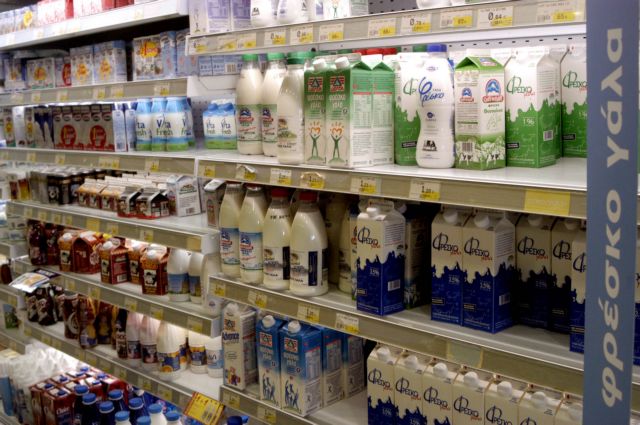One of the recommendations in the OECD’s toolkit which the troika has insisted upon is the deregulation of the sale of milk, which the Ministry of Agricultural Development has resisted. With pressure mounting to come to an agreement with the troika though, the Ministry is willing to accept the sale of low pasteurization milk under the designation “fresh”.
The Ministry had consistently argued that low-pasteurization milk, which has a shelf life of about ten days, cannot be sold as “fresh”, but has been forced to revise its stance. The Ministry now wants to deregulate the shelf life of milk and to maintain the ability to label milk as fresh. The government has also backed down from its claim to regulate the sale of milk with a shelf life of one to two days.
Since the two main selling points of milk are its long shelf life and the artificial designation “fresh”, the Ministry hopes that its proposals will help support dairy farmers focus on these two different extremes, avoiding the intermediate options.
The Ministry claims that no type of milk currently on sale has a shelf life of 5 to 15 days and only 6 products have a shelf life of 15 to 40 days. Conversely, 17 products have a shelf life of 5 days and another 17 last for 40 days, perfectly highlighting the artificial distinction.
Should these artificial distinctions be set aside, the Ministry estimates that consumers will have more options, since the competition amongst a greater range of products will push prices down.





